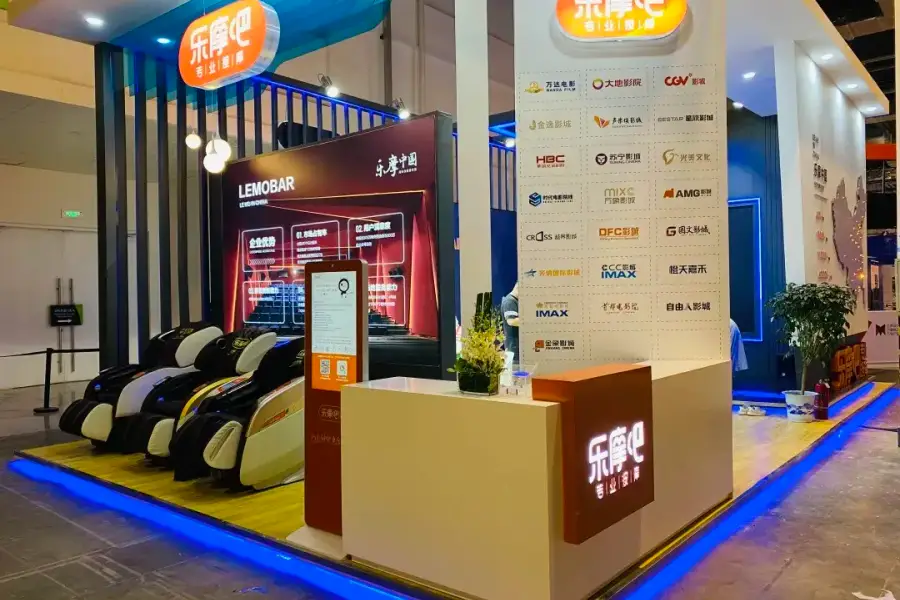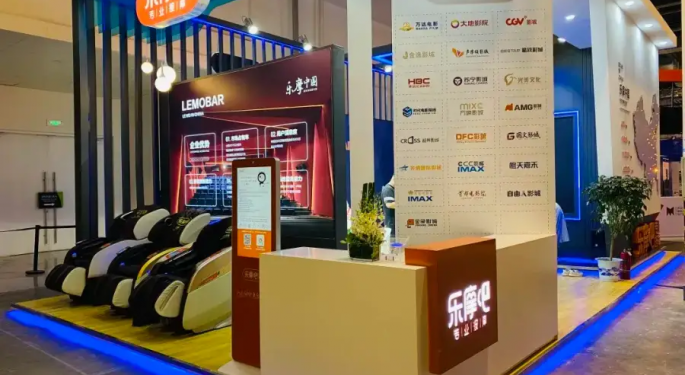IPO Applicant Lemo Faces Cash Squeeze And Credibility Questions

The operator of massage chairs in public spaces is making a renewed pitch to investors amid a lingering controversy about its business data
Key Takeaways:
- The firm deploys massage chairs in malls and transport hubs but more than 80% of its machines are located in cinemas, with lower usage rates
- A recent report in a state-run securities journal cast doubt on the number of its massage chairs in operation
They have become a familiar sight in China's crowded shopping malls and transport hubs: rows of bulky mechanized chairs offering an affordable, automated massage for the weary shopper or commuter.
Users may welcome the opportunity for some stress relief, while others complain the machines are invading public spaces and are even replacing standard seats in cinemas. But what can the massage chairs offer investors?
A leading provider of massage chairs at commercial locations, operating under the Lemobar brand, wants to give equity investors an opportunity to buy into its business by listing its shares on the Hong Kong stock market.
The company, Fujian Lemo IoT Technology Co. Ltd., is making a second IPO attempt after an initial filing in January lapsed. This time, however, the firm may have to override doubts that have emerged about the scale and sustainability of its business.
In the filing to the Hong Kong Stock Exchange,Lemodescribed itself as China's leading provider of automated massage services with more than 535,000 mechanized chairs deployed across the country, administered directly by the company or through local partners.
Although commercially operated chairs have visibly proliferated, they still make up a fraction of China's overall market for massage services, which remains dominated by hands-on therapists.
A study cited in the prospectus found that mechanized massage was worth 2.7 billion yuan ($376.1 million) in China last year, representing just 0.5% of an overall market valued at 536.2 billion yuan. However, the automated niche is highly concentrated among a handful of providers, giving Lemo a market share of nearly 43% last year, according to the IPO paperwork.
From a base in the city of Fuzhou in Fujian province, the company started out in 2014 and launched its Lemobar brand two years later, with a mission to provide convenient massage services in bustling locations such as cinemas, airports, inter-city rail terminals and other traffic hubs.
The IPO documents said Lemo's services were available at more than 48,000 locations by July 18 this year, with more than 535,000 massage chairs across 31 provincial-level administrative divisions and 339 cities across China. The company said it had achieved a cumulative total of more than 165 million identifiable service consumers and more than 32 million registered members.
Lemo relies on directly operated equipment for most of its income. Some 71% of service locations fall under the direct business model, with just 29% run by partners, who pay fees for use of the machines and are responsible for day-to-day operations.
Revenues grew rapidly from 2022 to 2024, rising from 330 million yuan in 2022 to 798 million yuan in 2024 for a compound annual growth rate of over 50%. However, the pace of revenue growth slowed to 35.9% last year from 77.8% in 2023 and decelerated to just 18.4% in the first quarter.
The direct channel generated more than 83% of Lemo's total revenue last year, while partnership operations accounted for around 14%. Aggregated gross profit margin fell from 41.8% in 2023 to 36.1% in 2024, with the direct services margin of 29.87% coming in much lower than partner services at 73%.
Uncomfortable questions
Lemo logged a tiny net profit of 6.48 million yuan in 2022 but turnover leapt to 87.34 million yuan the following year as the economy reopened after the pandemic. Net profit slipped 1.7% last year to 85.81 million yuan, although the adjusted net profit figure rose to 102 million yuan from 94.57 million yuan in 2023. In the first quarter of this year, net profit declined by 11% year-on-year to 23.338 million yuan.
As for business reach, the company said its presence extended to 69% of major Chinese shopping malls with a footprint above 30,000 square meters, 55% of Chinese cinemas with box office income above 5 million yuan, and 58% of Chinese airports with annual passenger figures above the 10 million mark.
However, these topline figures do not give the full picture. The 432,000 cinema-based machines, located in waiting or viewing areas, make up more thn 80% of the total. Those chairs are used only 0.07 times a day on average, compared with 2.8 times for devices in commercial complexes, defined as leisure and shopping venues with high foot traffic, and 3 times for airports.
Earnings per machine were just 168 yuan for cinemas in the first quarter, a fraction of the 1,692 yuan from machines located in commercial complexes, where around 14% of Lemo's devices are to be found.
Meanwhile, usage rates are falling. The average daily transactions per machine fell from 2.04 times last year to 1.92 times in the first quarter of this year while the average charge ticked up from 14.69 yuan to 14.74 yuan.
The proportion of partner-operated devices fell during the same period to 8.1%, from 23% in 2022, increasing the company's reliance on the lower-margin business of directly operated services.
Data credibility
Besides, questions have been raised about the tally of machines in use. An investigation by the state-run China Securities Journal, published in July this year, found discrepancies between advertised numbers and the volume of verifiable machines. For example, of around 32,000 chairs in the "Energy Egg" series only 531 could be verified, 1.6% of the stated total. And procurement data indicated that the top five suppliers had been paid only 153 million yuan, enough to cover 61,100 devices at the industry's lowest price point, equivalent to around 11% of the published total of 535,000.
Lemo has not directly responded to the journal's report and made no mention of the controversy in its IPO paperwork.
Questions have also been raised about an ownership shuffle in the run-up to the IPO. Currently, Xie Zhonghui is listed as the controlling shareholder after founder Wu Jinghua reduced his stake from 60% in 2016 to 15.16% just before the IPO application, stoking speculation about a proxy relationship.
Wu is now chairman of Fujian Honor Fitness Equipment, a supplier of Lemo's massage chairs.
However, the most pressing issue right now is funding. By the end of March, the company's cash on hand was a mere 26.21 million yuan, while short-term loans reached 45 million yuan, raising the risk of a cash crunch.
The proceeds of the IPO, if successful, were said to be earmarked for expanding to new locations in China and establishing a foothold in the Southeast Asian market. But Lemo may still have some questions to answer before persuading investors to buy into its proposition.
Benzinga Disclaimer: This article is from an unpaid external contributor. It does not represent Benzinga’s reporting and has not been edited for content or accuracy.
Posted-In: contributorsAsia IPOs Global Opinion



